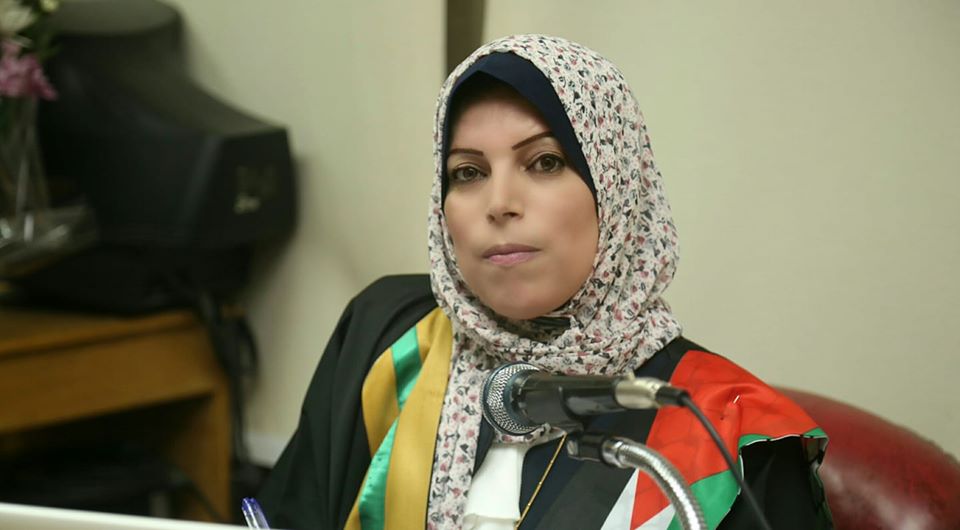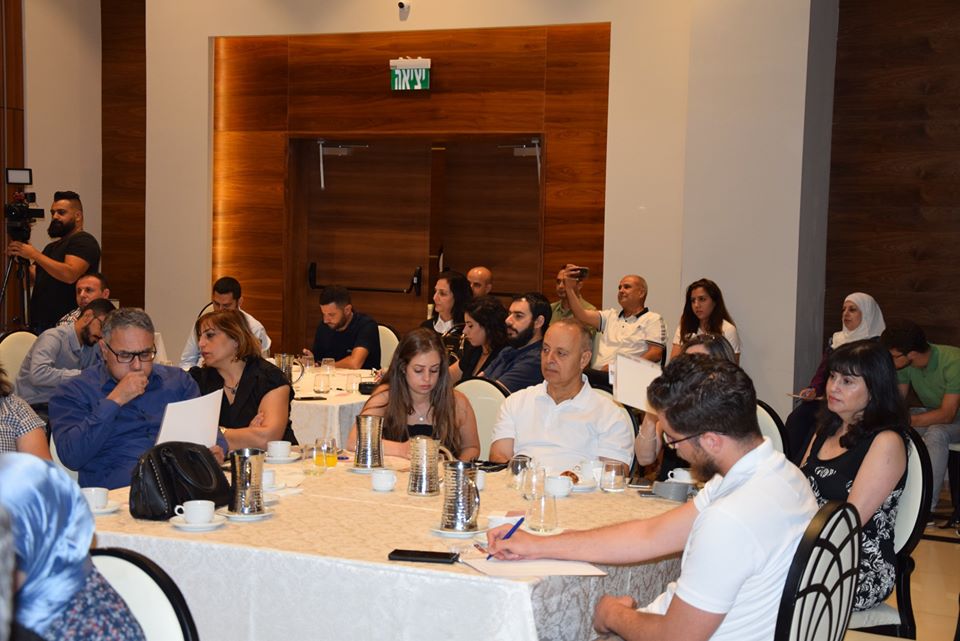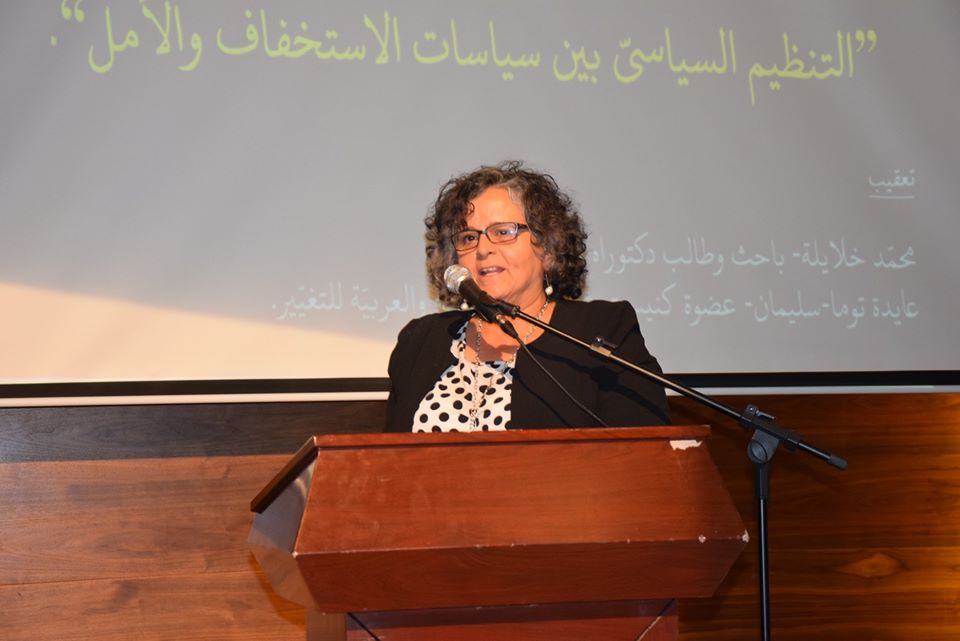Mada al Carmel, whose work we help to support, have had a really busy year, publishing papers and books as well as running a variety of conferences and other events. Their activities are extensively covered on their website https://www.mada-research.org/en/home-eng/ in English and Arabic. We include a few photos, summaries of speeches and quotes from speakers and attendees at some of their events.
City of Oranges Book Review
Professor Mahmoud Yazbak: Prof. of Middle East History in Haifa University and Board Member at Mada, spoke in a seminar in Yaffa about his book, “The City of the Oranges” on 43rd anniversary of Land Day, March 27th, 2019, at Saraya Theater. Yaffa was a famous city not only in Palestine before the Nakba, but in the entire Arab world and internationally. It was the centre of Palestinian orange exports.. The book is about the history of Yaffa as an intellectual, cultural, political, social and economical city, very unique on the regional and international levels. Yaffa represents the glory and history of Palestine.
Ph.D Student Research Presentation seminars
Between January and August a series of research presentation seminars were held for Ph.D students to share their work. Alham Sharmali, a student from Gaza managed to participate via Skype. She said:”I am very moved and excited for the unique opportunity to talk to my Palestinian people from 1948. It is so much more than being affiliated in a special event, it is very empowering for me.”
Ahmad Mahmoud, one of the seminar participants, said: “It was a special and enriching experience, especially learning about the various research of the other Palestinian students who study in Israeli Universities. The areas covered by the seminar are very important to me in the process of writing my dissertation and will be important later in my postdoctoral phase. I hope these seminars will continue to help students from social and human sciences.”
Camelia Ibarhim, a presenter at Mada’s conference said: “it was a great opportunity by Mada al-Carmel to present our research in Arabic. As a student in an Israeli university, I often think, write and present in Hebrew. Presenting in Arabic was a challenge and I think all Arab students should take part in such activities that help researchers preserve their language and their identity.”
Annual Academic Conference
- On June 22, 2019, Mada held its annual academic conference in Nazareth entitled “Transformations in Political Participation in the last Two Decades and a Glance Towards the Future.” Dozens of academics, university students, politicians and activists participated in the conference,
Aida Toma– MK representative of “Jabha” Party (originally the Israeli communist party) and an MK in the Joint List spoke on the role of women in both the local and State politics. She noted there are positive changes towards having more female representatives, but it still minimal. She also spoke about the negative impact of the political situation in the Arab countries in general and the Palestinian Authority in particular. “We the Palestinians, in general, are endangered regarding our rights and our cause. We should act differently to face this hard reality… “.
Mohamad Barakeh– the Chairman of the High Follow-up Committee for the Arabs in Israel focused on the importance of complimentary work; and cooperation between academic and political fields for mutual enrichment and to enlarge the impact on the community level. Collective work between all influential bodies is crucial when speaking about the Palestinians in Israel, who suffer from official and systematic policies of marginalization, discrimination and racism.
Modar Younis– Chairman of the Regional Committee of Arab Local Authorities said: ” Young people became attracted to becoming mayors, because it is an opportunity to play a leading position on the one hand, and it is the best “tool” to gain power. This means that young leaders are running local authorities and have a huge influence on local policy. However and due to the “disappointment ” in political parties, these young leaders like the older generation, based their efforts in the local authorities elections on their families, and not necessarily on the political parties. Political parties, the academic field and local authorities should enhance their collective work.















